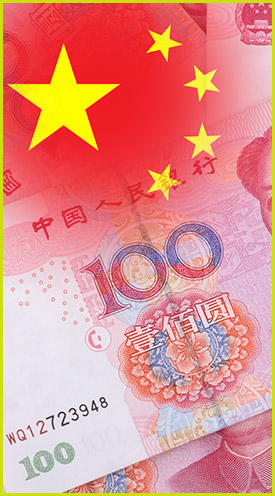Macau, Singapore, Vietnam and the Philippines are no longer revenue generating meccas for gambling companies
For years it seemed that Asia was going to be the largest continental market for gambling. Several U.S. companies threw immense resources into building casinos in the area along with Asian companies. Las Vegas Sands built casinos in Macau and Singapore; Wynn built casinos in Macau; MGM built a casino in Macau and has plans to build a resort casino in Osaka Japan; and Hilton has a few hotels throughout Manila. As well, several Asian based companies including Genting and Galaxy Entertainment built casinos in Vietnam and Cambodia along with the other aforementioned countries. And along with all the physical casinos, several online companies including Bet365, William Hill and even Pinnacle threw great resources at the Asian gambling market with the belief that it could be the bread and butter of their profits in the future. While that may have been the intentions of gambling companies, the Chinese government had different ideas in recent years. In the two or so years prior to the pandemic Chinese president Xi Jinping announced a crackdown on gambling from Chinese residents and warned neighboring countries to ensure they follow suit, or else. Consequently, in late 2019 a thousand people were arrested by the Chinese government in relation to online gambling in both China and Cambodia and citizens were warned that if they were caught gambling illegally, they could face jail time or worse. Not surprisingly, this quelled the enthusiasm of many Chinese residents and stopped them from pursuing online gambling any further. Moreover, the Cambodian government announced that all licenses for iGaming would be stopped, and the industry would be shut down that year. And in neighboring Vietnam, the Chinese government is closely monitoring operations there to ensure they are not attracting Chinese gamblers. By all accounts, Vietnam will soon follow Cambodia’s lead.
While that may have been the intentions of gambling companies, the Chinese government had different ideas in recent years. In the two or so years prior to the pandemic Chinese president Xi Jinping announced a crackdown on gambling from Chinese residents and warned neighboring countries to ensure they follow suit, or else. Consequently, in late 2019 a thousand people were arrested by the Chinese government in relation to online gambling in both China and Cambodia and citizens were warned that if they were caught gambling illegally, they could face jail time or worse. Not surprisingly, this quelled the enthusiasm of many Chinese residents and stopped them from pursuing online gambling any further. Moreover, the Cambodian government announced that all licenses for iGaming would be stopped, and the industry would be shut down that year. And in neighboring Vietnam, the Chinese government is closely monitoring operations there to ensure they are not attracting Chinese gamblers. By all accounts, Vietnam will soon follow Cambodia’s lead.
In the Philippines, the government had warned operators for a while now that a major crackdown could be coming after reports came out indicating the Chinese government was quite upset about nationals traveling to the Philippines to solicit bets from Chinese nationals online. At its peak over 300,000 Chinese workers were employed by Philippine Offshore Gambling Operators (POGO). And just last month the Philippine Amusement and Gaming Corporation (PAGCOR) announced it was stopping the operations of 175 POGO firms in the country and deporting 40,000 Chinese workers. The government justified the actions by saying that these gambling operations were leading to a huge increase in crime in the country.
"The crackdown was triggered by reports of murder, kidnapping and other crimes committed by Chinese nationals against fellow Chinese nationals," Justice Ministry spokesperson Jose Dominic Clavano said in a statement to the media.
To ensure that the industry will end, Philippine Senate majority leader Joel Villanueva tabled a bill that would prohibit and penalize any form of online gambling in the country.
"The consequences of gambling and online gambling are too severe to be ignored. The cost of gambling is no longer limited to the loss of money, but extends to the loss of values and lives," Villanueva said in an explanatory note of the bill he filed on September 6.
Villanueva noted examples of citizens arrested by the police for being unable to pay gambling debts and more concerning people being abducted due to their involvement in e-sabong (which is betting on cockfighting streamed online).
 Despite the issues raised by Villanueva and Clavano, almost all analysts agree that the Philippines government is taking these measures reluctantly since the offshore operators contribute close to $3 billion USD to the economy. Nevertheless, the threats from China, along with the obvious crime, makes continuing as is too risky.
Despite the issues raised by Villanueva and Clavano, almost all analysts agree that the Philippines government is taking these measures reluctantly since the offshore operators contribute close to $3 billion USD to the economy. Nevertheless, the threats from China, along with the obvious crime, makes continuing as is too risky.
PAGCOR said that they currently have 34 approved offshore operators – down from a peak of 63 in 2019, along with 127 accredited service providers and five special class of BPOs which have all undergone checks and have assurances they do not target Chinese gamblers online.
While online gambling has hit some major obstacles in Asia, land-based gambling operations have also been struggling and hit with unexpected consequences as well, mostly fueled by the Covid pandemic.
Covid losses
Before the pandemic, Macau gambling was thriving. Prior to the pandemic Macau's revenue was 308 billion pacatas (around $38 billion USD) and fell about 3.4% in 2019, although that decline was almost exclusively due to heightened security by China around visas and ensuring that Chinese residents weren't visiting Macau more often than allowed by the Chinese government. It was expected that once the kinks were ironed out tourism and revenue would rise again. But in 2020 Covid hit and Macau's figures plummeted due to both the pandemic and China's announcement that it was going to crack down on junkets and limit visas for Chinese nationals. As a part of China's Zero Covid policy, any visitors to China had to isolate for 14 days in a hotel before being able to visit a casino, making casino tourism unrealistic. Moreover, at the start of the pandemic casinos were closed for several weeks and Macau limited the number of visitors from China and other Asian countries. Consequently, when the year ended Macau's gaming revenue was just over $7 billion USD and the majority of casino operators didn't cover their costs. 2021 figures improves slightly, but the casino industry continued to suffer, as the total gambling revenue barely exceeded $10 billion USD. More importantly, Chinese nationals were staying away and the Chinese government threats against junkets and professional Chinese gamblers intensified.
By 2022 Covid restrictions in Macau had finally begun to be eased, although China still locked down much of the country for a few weeks in July after a Covid breakout in Beijing. But throughout the year Macau visits haven't come close to pre-pandemic figures. In fact, the casino operators only saw about $49 million bet in July, which wouldn’t be enough to cover salaries and overhead. And from January to August, Macau only saw about $3 billion USD in total gambling revenue for the year to date, representing a resounding 53% drop in revenue compared to 2021.
Macau casino applications
To make matters worse for many of the operators, the Macau government announced that they are processing applications for the new casino licenses and 7 companies have vied for the six licenses available. The companies that applied include Sands China, Wynn Macau, Galaxy Entertainment, MGM China, SJM Holdings, Melco Resorts and GMM Limited, which is owned by Genting.  The first six companies already hold licenses, but Genting doesn't. There seems to be an indication that China may be urging Macau to accept Genting’s bid since some high-ranking members in the Chinese government want more Asian ownership in Macau and if that happens one of the current licensees will lose theirs in favor of GMM. SJM Holdings and Galaxy Entertainment are almost assured to maintain their licenses meaning one of Melco, MGM, Sands or Wynn could lose theirs.
The first six companies already hold licenses, but Genting doesn't. There seems to be an indication that China may be urging Macau to accept Genting’s bid since some high-ranking members in the Chinese government want more Asian ownership in Macau and if that happens one of the current licensees will lose theirs in favor of GMM. SJM Holdings and Galaxy Entertainment are almost assured to maintain their licenses meaning one of Melco, MGM, Sands or Wynn could lose theirs.
The Macau government would prefer not to revoke a current license as that would cause confusion and chaos, but one analyst I spoke to indicated that he is almost certainly what will happen. Wynn has a huge resort casino in Macau and was one of the first companies to be given a casino license so they are likely safe, but Sands and MGM could be one of the licensees in trouble. Sands has a subconcession relationship with Galaxy, Melco has a subconcession relationship with Wynn and MGM has a subconcession license with SJM Holdings. Melco, as a Hong Kong based operation is likely going nowhere, meaning that either Sands or MGM could be one of the unlucky companies being shown the door. Both companies paid the fee to the government to ensure they can continue operations in Macau until the end of the year, and both companies agreed to the rules set out by the Macau license in relation to junkets, but nothing is guaranteed for 2023. One analyst I spoke to who is close to the Nevada casino industry told me that both companies are preparing for the possibility of losing their license and if they are forced out, they may just sell their current casino to the subconcession they have a relationship with and enter into a silent partnership agreement. The analyst even told me that if they do lose their license, neither feel it would be the end of the world.
Vegas sours on China
The Las Vegas operators no longer view Macau as a panacea. They have seen revenue decline rapidly as a result of Covid, and they realize that unlike Nevada and other states, the Chinese government is willing to shutter casinos as long as needed to deal with any future viruses with no apology or renumeration for cutting off their businesses. They also have started to realize that China has full control over Macau, despite the arrangement on paper, and China is set to invoke rules that will make it extremely difficult for them to be profitable. The new visa rules, along with rules related to junkets, will make it almost impossible to be profitable in the region going forward. I know people on the Sands board and one of those has indicated to me that the company would be only too happy to get out of Asia altogether, including Macau and Singapore and focus on the United States and online gambling. They know that online gambling is off the table as long as Miriam Adelson is in control the company, but they also know it is the future and would prefer to focus their efforts into preparing for its eventuality along with building the Venetian, Palazzo and other U.S. ventures they are seeking.
MGM has also soured on Macau and believes that the bulk of their revenue will come from the new Osaka resort. Unlike Macau, MGM expects tourists to come in the millions from Australia, other Asian countries and even tourists in other continents. And like Sands, MGM realizes that their biggest revenue stream going forward will be online via the BetMGM app and website, especially when states start adding online casino and poker wagering to their sports betting options. Obviously, both companies would prefer to keep their current licenses and will work hard to ensure they are still operating in Macau, but if their license is revoked, few in management will "lose sleep over it."
So Asian gambling is no longer the be all and end all for gambling operators that it was once viewed to be. An unforeseen pandemic, a large crackdown on online gambling in the whole region, and a very strict set of rules implemented to curtail visits by nationals to existing casinos by the Chinese government has resulted in a situation where U.S. gambling operators realize the grass isn't necessarily greener on the other side of the Pacific. Asian residents love to gamble, but when rules and obstacles are constantly put in their way with the threat of hard jail time for anyone violating those rules, most residents will choose to stay home and find other avenues to satisfy their gambling cravings. After all, losing one's life or livelihood isn’t worth risking simply for the opportunity to gamble online, and it seems Internet-based gambling operators agree too, as most foreign online operators have withdrawn almost all of their services and advertising to the region. It's unfortunate that China has taken this stance as online gambling in North America has just started to take off and is proving to be a Godsend to many state governments. But that’s the difference between a democracy where one can spend money as they like and communism, where the government controls your actions and beliefs.
Read insights from Hartley Henderson every week here at OSGA and check out Hartley's RUMOR MILL!







































